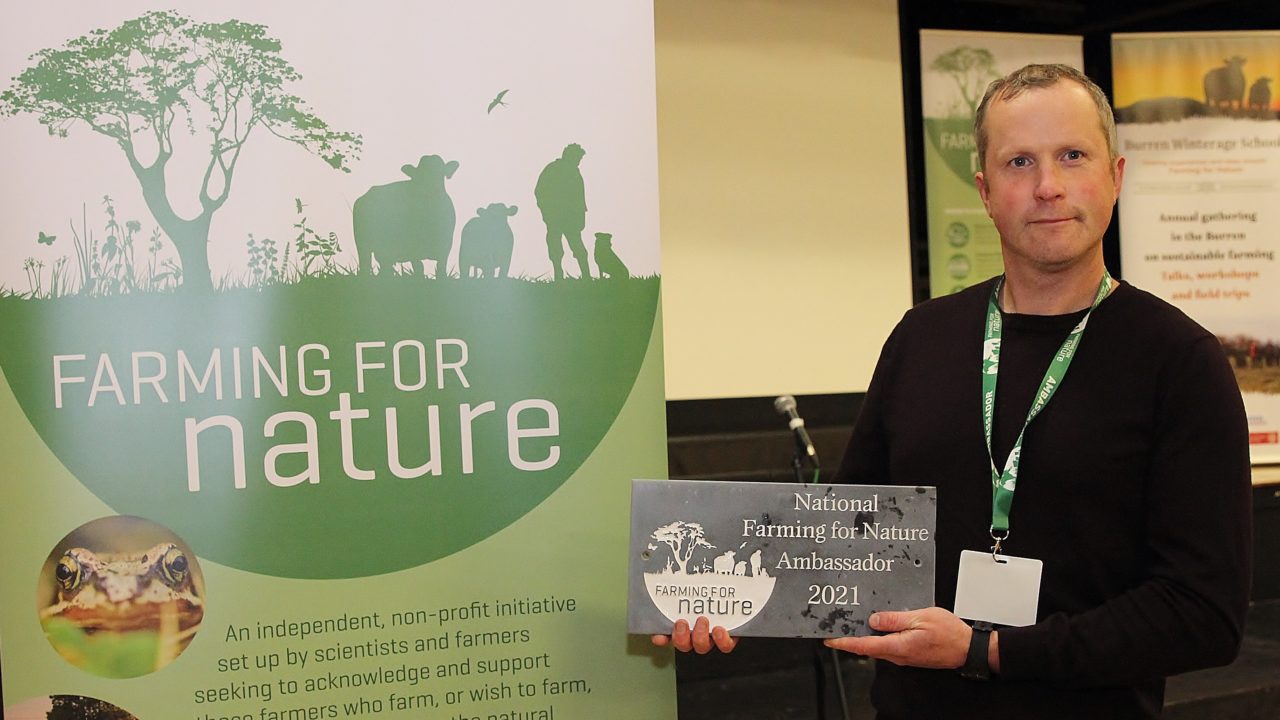A Co. Mayo sheep farmer, who regards himself as a caretaker of the land, has joined the Farming for Nature (FFN) ambassador network.
Now in its fourth year, FFN was established to highlight stories of farmers from across Ireland who manage their land sustainably, while providing an income for their family.
A total of 23 ambassadors have been selected, including beef; sheep; forestry; dairy; horticulture; and tillage farmers.
The participants manage a wide range of “valuable habitats” such as
species-rich grasslands and heaths; wetlands; woodlands; and hedgerows.
The FFN awards are sponsored by Bord Bia and supported by a wide-range of relevant stakeholders including the Department of Agriculture, Food and the Marine (DAFM), the National Parks and Wildlife Service (NPWS) and the National Rural Network.
Farming in the west
FFN ambassador Colm Gavin is an eighth generation farmer in the Bundorragha area where he keeps up to 100 Mayo blackface ewes.
The sheep are out on the mountain year-round, grazing the multi-species natural vegetation and maintaining the land.

Colm operates a very extensive hill-farming operation and very few external inputs are required on the farm.
“Actively farming is the best thing I can do for nature on my farm. A lot of uplands need to be managed to get the most out of them,” he explained.
The Mayo man is also part of the Pearl Mussel Project (PMP) European Innovation Partnership (EIP).
It rewards participant farmers for the ecological quality of their land, which in turn contributes to the pristine water quality needed by the freshwater pearl mussel.
As part of his work with the project, Colm has removed invasive rhododendron from the mountain.

He is using silt traps to prevent excess sand and silt run-off from the land entering the river and livestock bridges to protect water quality.
“Being part of the Pearl Mussel Project EIP puts value on land that we wouldn’t have considered highly valuable in the past.
“These areas have actually turned out to be the most important areas on the farm in terms of biodiversity.”
Colm sees himself as a caretaker of the land and hopes to pass it on to the next generation in better condition than which he found it.
“As a hill farmer – all you’re doing is maintaining the land,” he said.
